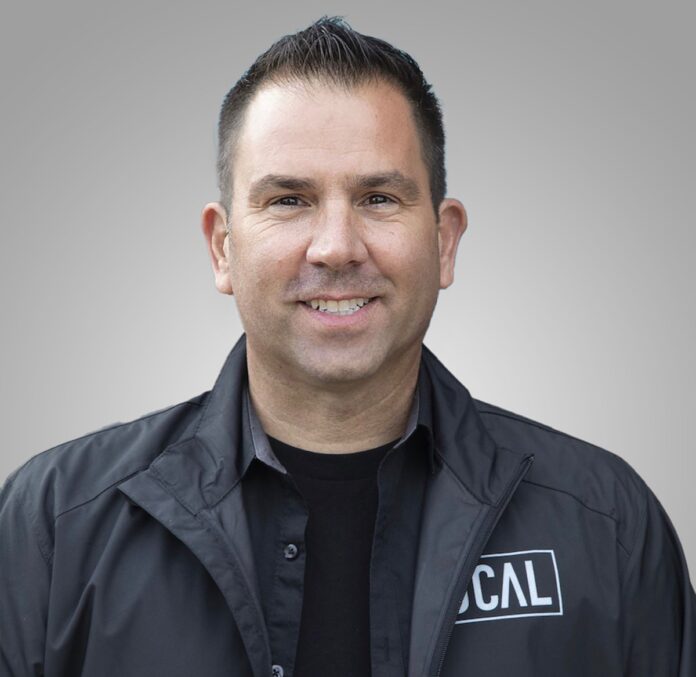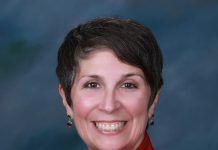La Mesa City Council candidate Tony Orlando, 49 said homelessness has reached crisis proportions in the city and affordable housing must be built without taking away from the character of the neighborhood while government officials should tackle getting cars off the road without taxing drivers.
“Really, homelessness is no longer an issue or a problem but a crisis which is another definition for a crossroads. I feel we have to lead with compassion, that is a guiding princiaple of my life. These people had a mom and a dad at one time and all human life has innate value. That being said, we need a pragmatic approach to homelessness,” Orlando said.
Head pastor at Lifepoint church by day, Orlando said he perceives different levels of homelessness from working in ministry at his church which is located “in the crosshairs between the trolley and the Vons parking lot” where he has had conversations with many people in need. He regularly questions what a particular person needs, where they stand with wanting or needing being open to receiving help.
There are “pre-homeless” he said, situations where someone is living in their car or maybe staying in a motel.
“Sure, they technically have a roof over their head but they were probably living in a home or apartment when they had a loss of job, traumatic event, something out of their control that hit them. They sometimes have a gym membership, we’ve known families with a single mom living in her car while the kids are crashing on different couches with a friend or relative because they can’t all stay together,” Orlando said.
A second group is the “newly homeless” population with “their entire life’s possessions” in a shopping cart or wagon. Usually, Orlando said, he finds they are self-medicating.
“There’s a golden 30-day window of someone who shifted from pre-homeless to newly homeless where their problems become significantly harder. You see the trickle effect where other factors come into play,” Orlando said.
The most challenging group to address, he said, is the third group: people who have life controlling addictions which have become insurmountable and are often coupled with mental illness.
“I don’t need to get into the fentanyl issue but drug abuse is a nonstop challenge. Mental illness coupled with drug addiction: you see it as a driving force for people living on the street,” Orlando said.
However, all three groups need to be addressed with appropriate partnerships, he said.
“I one thousand percent support our law enforcement partners but they can’t go beyond what they have been trained to do. They’re trained to prevent crime and fear of crime, not equipped to handle addiction or mental illness,” Orlando said.
Outreach workers from the Homeless Outreach Mobile Engagement program appear less threatening than a police officer with “a badge and a gun,” he said, and can connect homeless residents with resource programs. Ideally, he said, La Mesa would partner with organizations that are already up and running rather than try to invent a new program.
“Locally, I think the HOME program is excellent. Regionally, East County Transitional Living Center has a wonderful program and really does ministry to get people out of that pre-homeless state. We use a drug addiction program at the church called Teen Challenge, although the name is limited because it really is for young adults. It helps get people off the streets with three square meals a day. It has a spiritual component but it also has an 85% success rate. In any kind of recovery program, that is very high,” Orlando said.
Groups like San Diego Rescue Mission and Father Joe’s are good but there aren’t enough of those programs and beds are maxed out, the pastor said. Still, he believes the city needs to “link arms” with groups that are already providing solutions.
“I don’t think it’s fiscally beneficial to start a homeless shelter or addiction treatment center in the city. It isn’t that I wouldn’t want it, but let’s partner with someone already doing that in their lane. Let’s say we want a food pantry for people in La Mesa—why start something when there’s Feed America, Feed San Diego, Farmers to Families? We can link arms with something successful,” Orlando said.
Compassion, he said, has to take on a form of accountability. His church always has bags on hand for homeless individuals who pass through with snacks, water and socks, along with a resource list but “it can’t be a band-aid” he said, or it isn’t true compassion.
Furthermore, he said he does not want the city to get to where working with the few dozen homeless residents in La Mesa is a public safety issue for the other 50,000 residents in the city.
“There is no easy solution but long term care with partnerships and organizations already doing things is a start,” Orlando said.
The city has changed over the past few decades, he said.
“I remember the antique shops that used to line the village but the culture’s changed and that change is attractive. I liked it before and I like it now; people don’t gather around an antique couch, they gather around a bar or a restaurant,” Orlando said but he does not want the village feel to get lost in the push for affordable housing.
La Mesa is landlocked, he said, yet there is no need to put in a “massive development” like the multi-story building slated to go up where the Randall Lamb building used to stand.
“I’m not a fan of the massive, five-story developments. I think they’re eyesores. A place like Mission Valley embraced that look years ago and built it in so it doesn’t look out of place. The scale here is lower and the Jefferson development— well, I avoid that corner,” Orlando said.
He would prefer to see commercial spaces redeveloped to include housing in accessible locations where they will not suddenly disrupt the look of the village.
“I believe Grossmont Center has plans like this. It’s already a commercial space and I think the plan is to put housing with things like a farmer’s market. To me, that’s not offensive, it’s not some development that’s now encroaching on my two-story house, it’s not visually intrusive to the area and it would provide affordable housing,” Orlando said.
Additionally, he said, building permits have to be easier for everyday residents to obtain. Accessory Dwelling Units are “a gift from the state” in their ability for a homeowner to build a rental without nearly as many limitations as in the past, he said. The son of a general contractor, Orlando remembers how few ‘granny flats’ his father built before 2015 when requirements such as square footage limitations and setback ordinances were lifted.
However, “it doesn’t work if people are taking 18 to 24 months to get a permit,” Orland said and he would like to work on establishing a path to get permits in place faster.
“I’m really interested in discussing affordable housing without taking away from the feel of the city,” Orlando said.
Ideally, he’d like to know exactly how many affordable units need to be built and come up with places where that housing can be added without changing the footprint of the city or drastically affecting parking in one location.
“I also have to ask: are the bike lanes causing more people to ride? Does anyone use the bike repair spot by the library? I think we have to come up with solutions we can test out. Sure, we can encourage people to walk or bike but the bottom line is people still have cars and the Costco gas line is huge seven days a week,” Orlando said.
Like homelessness, he said, there isn’t a quick and magic solution for getting cars off the road.
“I’m not a fan of the trolley. I don’t feel it’s as cost effective as it could be,” Orlando said.
Unenforced fares are tied in with homelessness, he said, which sometimes creates safety issues. The trolley is steps away from the church where he works, and he sees how often people are riding for free just to ride.
Alternatively, “if you took away the trolley and gave financial incentive to people to take the bus or ride their bike; if we could get to where we need to go that way, that would lower traffic congestion,” Orlando said, adding that he loves riding his bike.
He is “openly fighting the mileage tax” because he thinks it is poor timing to ask cash-strapped residents to give more while the economy is struggling.
“My wife and I are middle class, and we survive but people in our faith circle are struggling. I think imposing more taxes in the middle of inflation is wrong, we have to put some of it on hold while finding creative ways to reduce congestion. People are going to need some sort of incentive from the government to get out of a gas car,” Orlando said.














